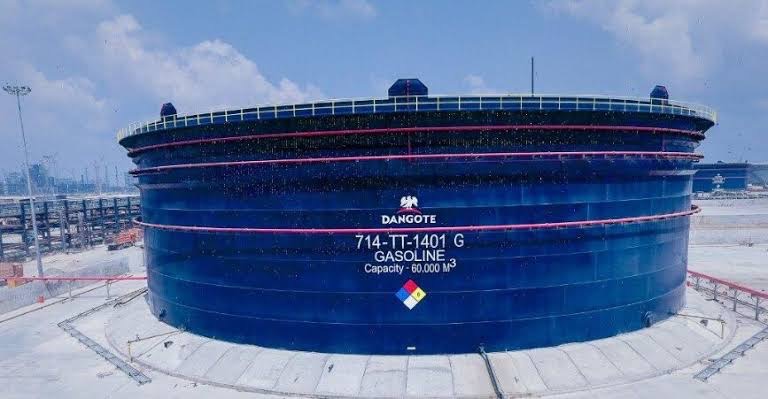KEY POINTS
- Dangote Refinery’s fuel distribution scheme delayed nearly two weeks after launch date.
- PETROAN warns of monopoly risks, while IPMAN expects eventual cost reductions.
- Retail fuel prices in Abuja remain high, at ₦885–₦910 per litre.
The rollout of Dangote Refinery’s much-anticipated fuel distribution scheme has hit an unexpected delay, nearly two weeks after its scheduled launch, unsettling petroleum marketers and raising fresh questions about how quickly Africa’s largest refinery can reshape Nigeria’s downstream sector.
The initiative, announced earlier this month by billionaire industrialist Aliko Dangote, was pitched as a cost-saving revolution. The company said it could trim distribution costs by as much as ₦45 per litre, translating into annual savings of roughly ₦1.2 trillion.
By deploying a fleet of compressed natural gas-powered trucks, the refinery aimed to ease one of the biggest inefficiencies in Nigeria’s fuel supply chain—high transportation costs.
The program hasn’t started yet, though, despite the hype. Although industry sources claim that between 450 and 1,000 trucks have already been delivered, the refinery has not commented on the cause of the delay. Fuel marketers who are assessing the benefits and drawbacks of Dangote’s move are uneasy about that silence.
Stakeholders split over pricing and monopoly fears
The plan has made the sector’s fault lines deeper. While expressing measured support, the Petroleum Products Retail Outlets Owners Association of Nigeria (PETROAN) cautioned against an over-reliance on a single operator. Billy Gillis-Harry, its president, pointed out that although Dangote’s plan might simplify logistics, lower gas prices might not follow.
The Independent Petroleum Marketers Association of Nigeria (IPMAN), on the other hand, has adopted a more positive stance. Abubakar Maigandi, president of IPMAN, stated that his members anticipate a decrease in fuel prices after the program begins. He acknowledged that start-up problems are common in businesses of this size and stated, “If transport costs are stripped out, then naturally retail prices should fall.”
“Monopoly is a real concern,” Gillis-Harry said in an interview. “Dangote’s cement distribution network is a clear example—despite efficiencies, prices have continued to climb. A similar outcome for fuel can’t be ruled out.”
Drivers are still squeezed for the time being. According to dealers, gasoline in Abuja sold for between ₦885 and ₦910 per liter on Monday night. In contrast, Oilprice.com data indicated that early Tuesday trading saw global oil benchmarks hover around $68.47 per barrel for Brent crude and $64.47 per barrel for West Texas Intermediate.
Industry participants are still awaiting word on when the refinery will start full-scale distribution, as the Dangote Group has not responded to the delay. It remains to be seen if it brings about the disruption Dangote promised or if it creates fresh worries about market dominance.



